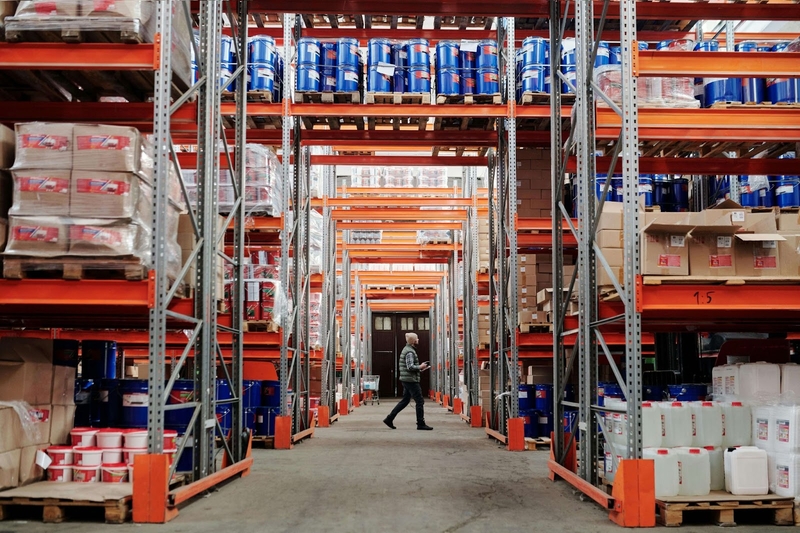
INDIVIDUAL RELOCATION CONSULTING
28 Aug 2025
How Do I Choose a Reliable Moving Company for My Relocation?
Selecting a reliable moving company partner is not merely a logistical step; it is a risk-management decision that affects home asset security, project timelines, and ultimately the cost of relocation for high-value individuals and global enterprises. The principles below move beyond neighborhood van hires and address long-distance or cross-border moves—scenarios where customs regulation, insurance sufficiency, and chain-of-custody controls determine success.
This guide walks you through how to choose a moving company, sharing real‑world tips on the paperwork you’ll need for an international move (Documents International Relocation), and the personal relocation services that keep the whole relocation stress-free.
Understanding the Role of a Moving Company
The term moving company covers a spectrum of companies and providers:
- Local movers concentrate on short-haul, intracity jobs, typically using a single truck and crew to handle the move.
- Long-distance carriers link states or provinces and must hold national transport licences.
- International relocation companies manage port handling, freight forwarding, and customs documentation.
For corporate clients uprooting data centres or executives shipping fine art and belongings, the international specialist is often the only viable choice. These firms coordinate end-to-end packing, crating, bonded storage, marine insurance, and last-mile delivery while maintaining auditable tracking data. Knowing which tier your home relocation demands are is the first filter in choosing a moving company.
Initial Research and Company Background Checks
Professionals responsible for mobility budgets begin with verifiable credentials:
- Licensing. A moving company operating on U.S. interstate routes needs a USDOT and MC number; EU carriers require an EU Community Licence. Asia-Pacific jurisdictions issue domestic road-haulage permits and separate freight-forwarder codes.
- Insurance. Confirm general liability, workers’ compensation, and cargo coverage certificates with current effective dates.
- Corporate stability. Investigate ownership structure, financial filings, and years in continuous operation—key signals of solvency, safety, and service consistency.
- Trade memberships. Affiliations with FIDI, BAR, or IAM indicate compliance with industry audits and mandatory training.
Public regulator dockets reveal enforcement actions revoked licences or poor reviews; legitimate moving companies welcome that scrutiny as proof of compliance.
Comparing Services and Capabilities
After verifying legitimacy, compare each bidder’s scope of work. Reputable moving companies provide a modular service portfolio and document inclusions in writing.
Introductory note: The list below outlines core deliverables. Confirm each item’s availability and price before mandating a provider.
- Packing and crating – Use of ISPM-15 stamped wood for export, tamper-evident seals, and asset-level barcode scans.
- Disassembly/reassembly – Qualified technicians for data racks, automated shelving, or custom furniture.
- Customs brokerage – Preparation of commercial invoices, ATA carnets, and classification under the Harmonised System.
- Climate-controlled storage – Bonded warehouses with temperature and humidity monitoring, often critical for pharmaceuticals or the fine arts.
- Digital tracking – Secure portals that display location pings, shipping documents, and estimated arrivals.
A closing takeaway: alignment between these capabilities and your move profile—rather than headline price—often determines downstream cost and risk.
Evaluating Cost Estimates and Pricing Transparency
How do I choose a good moving company? Corporate procurement teams encounter three quotation models:
- Binding estimate – A fixed bid covering the detailed inventory; cost can only rise if scope expands by a written change order.
- Non-binding assessment – A provisional price that adjusts to actual weight, cubic volume, or ancillary services.
- Not-to-exceed estimation – Sets an upper ceiling but allows savings if the final cubic volume is lower.
Insist on a home site survey—virtual or in person—to avoid problems. A transparent assessment itemizes labor hours, packing materials, ton-kilometer charges, port fees, customs processing, and insurance premiums, helping you understand exactly what you will pay. Deals that require cash deposits, skip surveys, or undercut market averages by double-digit percentages should be excluded immediately.
Red Flags to Watch For When Choosing a Moving Company
Although regulatory oversight has improved, fraud and underinsurance remain common. Warning signs include:
- No physical office address or only a mailbox service.
- Licence numbers that do not appear in federal or regional databases.
- Sales pressure that urges immediate booking without a written contract.
- Generic email domains and phone numbers that change between quotation marks and follow-up.
- A surge of online reviews within a short timeframe—often evidence of paid testimonials or reputation laundering.
Document every interaction via email; a reputable moving company prefers traceable communications and will not hesitate to outline liability terms.
Reading Reviews and Checking References
Third-party review sites and direct client interviews provide qualitative assurance beyond paper credentials, helping you distinguish reputable moving companies from fly-by-night operators.
Begin with aggregated data: patterns of late deliveries or damaged shipments are more revealing than isolated reviews.
Next, secure two recent references whose home moving profile mirrors yours—similar volume, distance, and customs complexity. Ask pointed questions about adherence to timelines, claims processing speed, and dispute resolution.
A brief conclusion: consistent performance across independent sources is a stronger indicator of reliability than a single glowing testimonial on the mover’s own website.
Insurance Coverage and Liability Protection
Liability starts with two baseline options. Valuation coverage—the statutory default—pays only pennies per kilo, leaving expensive gear badly under-insured. Full-value protection raises the bar: the mover must repair, replace, or reimburse each item up to a declared amount, and a professional mover will clearly outline these terms in writing.
Reputable carriers layer additional choices—standard full-value caps, all-risk marine cargo for sea freight, and fine-arts rider for delicate collections. Before you sign, match policy limits to the true replacement cost of your belongings, scan for exclusions such as war risk or mould, and, for international or high-value moves, consider a standalone cargo policy to seal any remaining gaps.
Communication and Professionalism
A professional tone is essential when shipments cross time zones and border checkpoints from the moving company. Gauge responsiveness by noting:
- Turnaround time on detailed queries, and whether staff demonstrate awareness of what is cultural competency training, especially for cross-border moves involving diverse clients.
- Depth of answers—do representatives cite regulatory codes or rely on sales scripts?
- The presence of a single account manager empowered to make scheduling adjustments.
- Willingness to commit to KPIs—pickup window, customs-clearance timeline, and claims-response SLA—in the contract.
Poor communication during the quotation process often foreshadows operational lapses by the moving company on moving day.
Final Checklist Before Signing a Contract
Before countersigning, work through the following control list to ensure contractual completeness and regulatory compliance.
- Match the service descriptions, delivery dates, and pricing of the moving company to the final statement of work.
- Confirm that the licence and insurance certificates have current, effective dates and adequate limits.
- Verify cancellation clauses, force-majeure language, and penalty structures.
- Conduct a last reference check, ideally with a client who moved within the past three months.
- Secure signed copies of the contract, inventory sheet, and quote; store digital versions on a secure drive.
These steps formalise accountability and provide essential documentation should a dispute reach mediation or court.
FAQs
How to choose a moving company for a corporate or high-value relocation?
Prioritise verified licences, robust insurance, confirmed international experience, and transparent estimates—then validate performance through independent references.
What should appear in a professional moving estimate?
Itemised labour, cubic-metre or weight charges, packing materials, insurance premiums, customs fees, storage, and applicable taxes, clearly stating whether the price is binding.
Is a global relocation firm always preferable to a local provider?
For cross-border shipments involving customs and multi-modal logistics, yes. Local firms excel at domestic moves but often outsource international legs, adding hand-off risk.
How can I confirm legitimacy quickly?
Cross-check USDOT or equivalent licence numbers, verify insurance via certificate, and examine membership lists for FIDI, BAR, or IAM.
Which red flags justify walking away?
Cash-only deposits, missing licences, pressure to sign without review, changing company names, and a pattern of unresolved claims in regulator databases.
References
FIDI Global Alliance. (2024). 2024 state of the industry report. https://www.fidi.org/system/files/2024-05/FIDI%202024%20State%20of%20the%20industry%20report%20FIN%20v3.pdf
International Association of Movers. (2015). Pulling back the curtain on risk management and claims.
https://iamovers.org/wp-content/uploads/2024/11/2015_05_06.pdf
Risk Strategies. (2025). State of the insurance market: 2025 outlook—Relocation. https://www.risk-strategies.com/state-of-the-insurance-market-2025-outlook-relocation

Private Equity
14 July 2025
ESG in Private Equity: Take The Lead in Sustainability
ESG in private equity involves business leaders and investors integrating environmental, social, and governance (ESG) factors into investment decision-making and ownership practices. This is increasingly expected from private equity firms, with investors and industries looking to firms to lead the way in responsible and sustainable investing. We’re going to examine ESG not just as a […]

Business Consulting
27 May 2025
5 Supply Chain Strategies: Which Is Best for Your Business?
When it comes to global business, your company’s supply chain can make a significant difference to success. These invaluable collaborations impact your ability to serve consumers, function efficiently, and compete in the international landscape. Supply chain strategy enables you to align logistics, production, sourcing, and distribution in ways that bolster your cross-border operations. Supply chain […]

Business Formation
26 May 2025
LLC vs. Corporation: Which Is Right for Your Business?
Choosing the right legal structure is fundamental when starting a business, as it affects multiple areas. This includes taxation, operational flexibility, and potential sources of investment. Two of the key business types are Limited Liability Companies (LLCs) and Corporations. Both offer a range of benefits, though there are some limitations to each, too. These are […]


